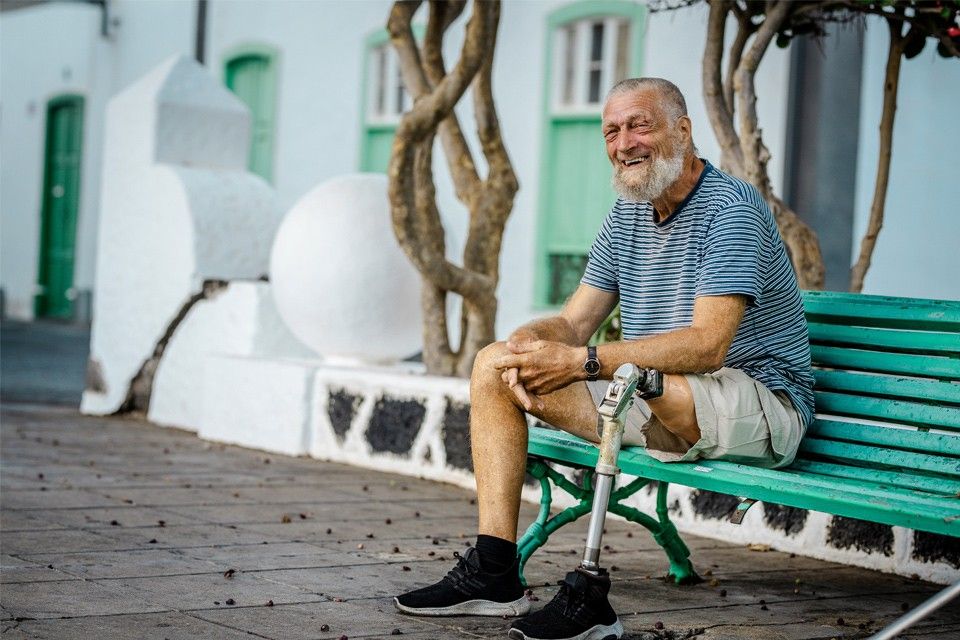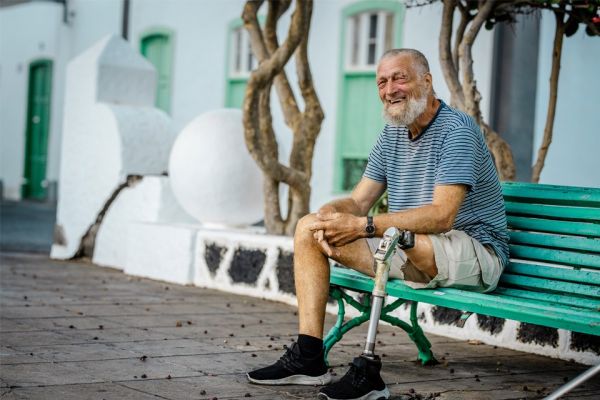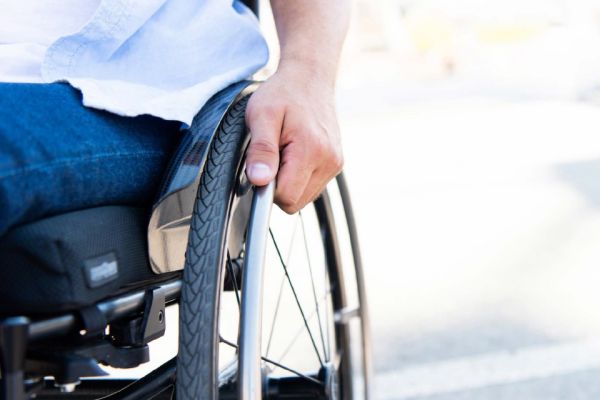Travel Smart - Know Your Limits
Author: Tanya Rabe, Right Foot Adventures

As an amputee, one of the most empowering things that you can do when planning a trip is to truly know your limits. That may sound like a restriction. But in reality, it’s the key to unlocking more enjoyable travel experiences.
The idea for this article came to me around 2:20 a.m. (a normal occurrence). I immediately sent myself an email reminder that said, “You limit yourself when you deny yourself permission to utilize tools or devices that will help you to travel, or live life, more freely.”
That’s not a statement of disability. Using devices that allow you to do all the things that you want to do makes you a person with ability.
When we travel, there’s a pressure to “keep up,” to push boundaries, and to make the most of every moment (thanks a lot FOMO… “fear of missing out”). While there’s nothing wrong with challenging yourself, ignoring your physical limits can turn an otherwise amazing trip into a painful or exhausting ordeal and a trip that you’ll remember for all the wrong reasons.
For amputees, understanding your energy levels, mobility range, and recovery needs, isn’t about holding yourself back — it’s about setting yourself up for success.
I’ve learned this firsthand over years of travel with an above-knee prosthesis. Some days I can walk for hours and feel great. Other days, swelling, or socket discomfort, means that I need to take a lot of breaks. It also means limiting stair climbing, or switching to a mobility device. The key is being realistic about your body’s capacity on any given day and planning accordingly.
That’s not a statement of disability. Using devices that allow you to do all the things that you want to do makes you a person with ability.
When we travel, there’s a pressure to “keep up,” to push boundaries, and to make the most of every moment (thanks a lot FOMO… “fear of missing out”). While there’s nothing wrong with challenging yourself, ignoring your physical limits can turn an otherwise amazing trip into a painful or exhausting ordeal and a trip that you’ll remember for all the wrong reasons.
For amputees, understanding your energy levels, mobility range, and recovery needs, isn’t about holding yourself back — it’s about setting yourself up for success.
I’ve learned this firsthand over years of travel with an above-knee prosthesis. Some days I can walk for hours and feel great. Other days, swelling, or socket discomfort, means that I need to take a lot of breaks. It also means limiting stair climbing, or switching to a mobility device. The key is being realistic about your body’s capacity on any given day and planning accordingly.
Here are a few practical ways to travel smarter by knowing your limits:
1. Be Honest with Yourself (and Others)
It’s easy to say “yes” to everything on a trip, but your body might disagree halfway through day two. Look at your itinerary and ask: “Is this too much walking? Too many hours without a break? Are there accessible options if I need them?” Ask yourself too: “Should I have a mobility device just in case (always yes)?” Communicating your needs clearly with travel companions, guides or travel agents shares expectations and reduces stress.
2. Pace Your Days
Plan your itinerary to include rest days or lighter activity days between excursions. Build in buffer time so you’re not rushing from one place to the next. Your energy is a valuable resource — spend it wisely.
3. Use Mobility Aids or Take Your Limb Off
There’s no shame in using a wheelchair, cane, or crutches, even if you only use them occasionally. When I’m on a cruise, I ALWAYS rent a mobility scooter for time on the ship (some are huge!). If you are an arm amputee, take your arm(s) off and give yourself a break! It’s not a step backward — it’s a smart way to conserve energy and avoid wear and tear on your residual limb.
4. Prioritize Accessible Accommodation and Transit
If you know that stairs are tough for you, don’t book a charming historic hotel with no elevator just because it looks beautiful online. Choose accommodations and transportation that match your mobility needs. The trip will be far more enjoyable if you’re not struggling just to get to your room. Accessible accommodations will be addressed in a future installment.
5. Listen to Your Body
Travel can be exciting, but it can also push your limits — often without you even realizing it. Pay attention to early signs of fatigue, skin irritation, or pain. It's okay to change your plans, cancel an activity, or just rest. The goal isn’t to check every box; it’s to have a meaningful, enjoyable experience.
It’s easy to say “yes” to everything on a trip, but your body might disagree halfway through day two. Look at your itinerary and ask: “Is this too much walking? Too many hours without a break? Are there accessible options if I need them?” Ask yourself too: “Should I have a mobility device just in case (always yes)?” Communicating your needs clearly with travel companions, guides or travel agents shares expectations and reduces stress.
2. Pace Your Days
Plan your itinerary to include rest days or lighter activity days between excursions. Build in buffer time so you’re not rushing from one place to the next. Your energy is a valuable resource — spend it wisely.
3. Use Mobility Aids or Take Your Limb Off
There’s no shame in using a wheelchair, cane, or crutches, even if you only use them occasionally. When I’m on a cruise, I ALWAYS rent a mobility scooter for time on the ship (some are huge!). If you are an arm amputee, take your arm(s) off and give yourself a break! It’s not a step backward — it’s a smart way to conserve energy and avoid wear and tear on your residual limb.
4. Prioritize Accessible Accommodation and Transit
If you know that stairs are tough for you, don’t book a charming historic hotel with no elevator just because it looks beautiful online. Choose accommodations and transportation that match your mobility needs. The trip will be far more enjoyable if you’re not struggling just to get to your room. Accessible accommodations will be addressed in a future installment.
5. Listen to Your Body
Travel can be exciting, but it can also push your limits — often without you even realizing it. Pay attention to early signs of fatigue, skin irritation, or pain. It's okay to change your plans, cancel an activity, or just rest. The goal isn’t to check every box; it’s to have a meaningful, enjoyable experience.
Accommodating your limits isn’t weakness — it’s wisdom. When you plan travel around what you can do comfortably, you’ll find yourself more present, less anxious, and better able to enjoy the journey. After all, travel should feel like freedom, not like a test.
Do you have a travel story, question, or tips that you’d like to share? Send me an email at This email address is being protected from spambots. You need JavaScript enabled to view it. .











 How to resolve AdBlock issue?
How to resolve AdBlock issue?